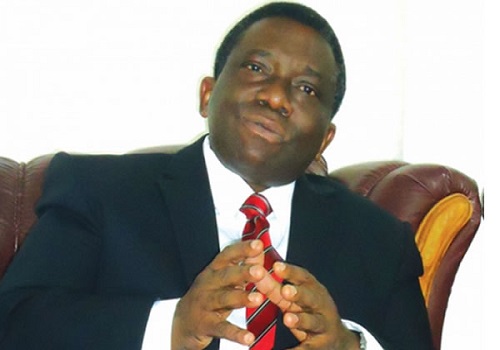The Minister further announced plans by Nigeria to situate NTDs within the Primary Health Centres currently being revitalised in the country in order to provide Universal Health Coverage to Nigerians. Continuing, he explained that NTDs is a disease of the poor and such efforts at reducing the burden must include poverty reduction. He further called on other ministers to take ownership of ESPEN, put it at the front burner and bring it under a robust domestic financing. While acknowledging the dwindling resources globally, he encouraged his colleagues to look into the limited available resources and re prioritize its activities, work at getting better value for it and make more money available to the programme through prudent allocation of funds to all health related activities.
In her opening remarks at the launch, the Secretary General of WHO, Dr. Margaret Chan, pledged the support of WHO to the African governments in moving ESPEN forward ESPEN will run from 2016 to 2020 and it is designed to work towards the control and elimination targets established by WHO and endorsed by the London declaration of 2012 on NTDs Also speaking, Dr. MatchidisoMoeti, WHO’s Regional Director for Africa, said the directorate will provide the relevant data, expertise and financial resources required to accelerate the fight against these diseases. The NTDs are a group of infections that place a constant and heavy burden primarily on the poorest, most vulnerable communities in the world most of which are located in Africa. These diseases are onchocerciasis, lymphatic filariasis, schistosomiasis, soil-transmitted helminthiasis and trachoma.
It is estimated that more than one billion people including more than 500million children are affected by NTDs of which 40 percent live in the African Region and Nigeria accounts for 25 percent of the African burden. The NTDs, though can be prevented and treated, yet they continue to disfigure and disable, destroying lives, preventing children from going to school and keeping communities in cycles of poverty.
Source: MWN

 The Minister of Health, Prof Isaac Folorunso Adewole yesterday called on African Ministers of Health to unite against Neglected Tropical Disease, NTDs, by including them in their Health Agenda, and ensure that they are no longer neglected.
The Minister of Health, Prof Isaac Folorunso Adewole yesterday called on African Ministers of Health to unite against Neglected Tropical Disease, NTDs, by including them in their Health Agenda, and ensure that they are no longer neglected. 




